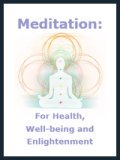
Predicting When
Menopause Starts
The number of eggs left in a woman's ovaries are like the grains of sand in an hourglass, ticking away the hours on her biological clock.
Researchers now say they may be able to predict when that clock will wind down.
And while doctors can't actually count the number of eggs in an ovary, they can measure ovarian volume. British researchers say there's a direct correlation between the two, and by measuring ovarian volume with transvaginal ultrasound, doctors should be able to predict when menopause will set in and how many fertile years a woman has left.
According to the study authors, this information will revolutionize the care of women looking for assisted reproductive technologies, including those who were treated for childhood cancers as well as women who want to put off starting a family for whatever reason.
Although information still needs to be validated in clinical studies, its benefit is most likely to start with women who are being treated for cancer and women attending fertility clinics, said Tom Kelsey, co-author of the study appearing June 17 in the journal Human Reproduction.
"If women looking for some sort of assisted conception and their physicians know that they've got a long time till menopause, then you could plan for a range of treatments," said Kelsey, who is a senior research fellow at the University of St. Andrews in Scotland. "If you knew menopause was likely in four to five years, you'd plan a different set of IVF [in vitro fertilization] treatments."
Others reiterate, however, that the findings should be treated with caution.
"Should a young woman who is 30 years old go for a test to figure out whether she's got three, five or 10 years left on her fertility? Should she make career decisions and life decisions? Are these data good enough to make those determinations?" asked Dr. Alan Copperman, director of reproductive medicine at Mount Sinai Medical Center in New York City. "The answer is obviously no to all of those questions. The predictive value of this test is not good enough to go and tell someone to change their life."
According to the article, eggs form in a female's ovary while she is still in the womb, peaking at several million about halfway through gestation and then starting a continuous decline. At birth, there are several hundred thousand and, when menstruation begins, about 300,000. At about age 37, a woman has about 25,000 eggs left, and at menopause only about 1,000.
The time at which menopause sets in is widely believed to be based on the number of eggs reaching a critically low threshold.
The authors of this study measured ovarian volume with transvaginal ultrasound, then looked at the relationship between ovarian volume -- ovaries shrink as a woman ages -- and number of eggs. They then applied mathematical and computer models to predict menopause.

The study authors are negotiating with a medical school to set up clinical trials. The idea would be to follow women to see if their predictions were indeed correct.
While these authors have come up with a tool to potentially help women plan their lives, a second study in the same issue of Human Reproduction warned that women might not want to leave it too late. Assisted reproductive technology (ART) could not be relied upon to fully compensate for lack of natural fertility after the age of 35, the article stated.
The authors used a computer simulation model to determine that the overall success rate of assisted reproductive technology would be 30 percent for those attempting to get pregnant from age 30, 24 percent for those trying from age 35, and 17 percent from age 40.
SOURCES: Tom Kelsey, Ph.D., senior research fellow, University of St. Andrews, St. Andrews, Scotland; Alan Copperman, M.D., director, reproductive medicine, Mount Sinai Medical Center, New York; June 17, 2004, Human Reproduction
See also:
- More about using herbs and vitamins for menopause.
- Natural remedy for to alleviate menopausal symptoms.
- Return to top of Menopause Memory Loss page.
Coping with Menopause:
Take a look at these useful resources relating to natural remedies for helping you cope with the menopausal symptoms:
You can also get the new Meditation for Wellbeing eBook free when you buy Natural Strategies for Coping with Menopause -- more details (click image):
Also see our additional insomnia cure and sleep problems articles, which can be useful to sufferers of typical menopause symtoms.



